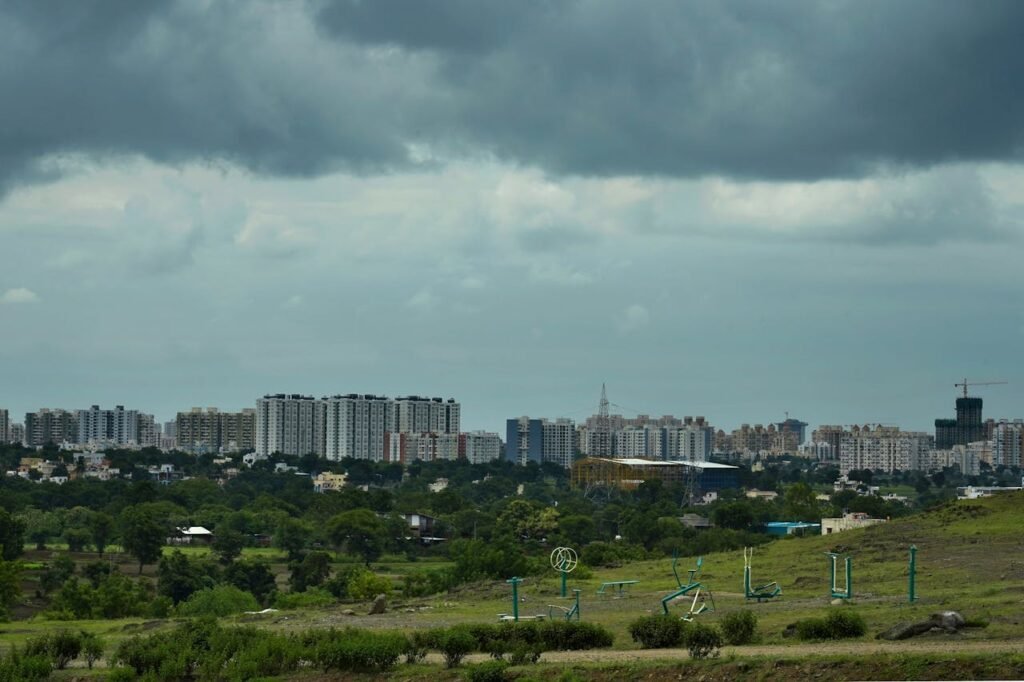Getting a prosthetic limb can feel overwhelming. Finding the right clinic, understanding travel options, and knowing when and where to go is not always easy.
If you live in Pune and are looking for a prosthetic hand or leg—or if you’re helping a loved one—you’re in the right place. This blog is your full guide to prosthetic clinics across the city, how to get there, when to go, where to park, and what to expect.
Everything is written in plain language. No confusion. Just helpful answers to make your next step smooth and stress-free.
Let’s begin.
Prosthetic Clinics in Pune Made Easy to Reach
Griffin Healthcare: Homegrown Care with Heart
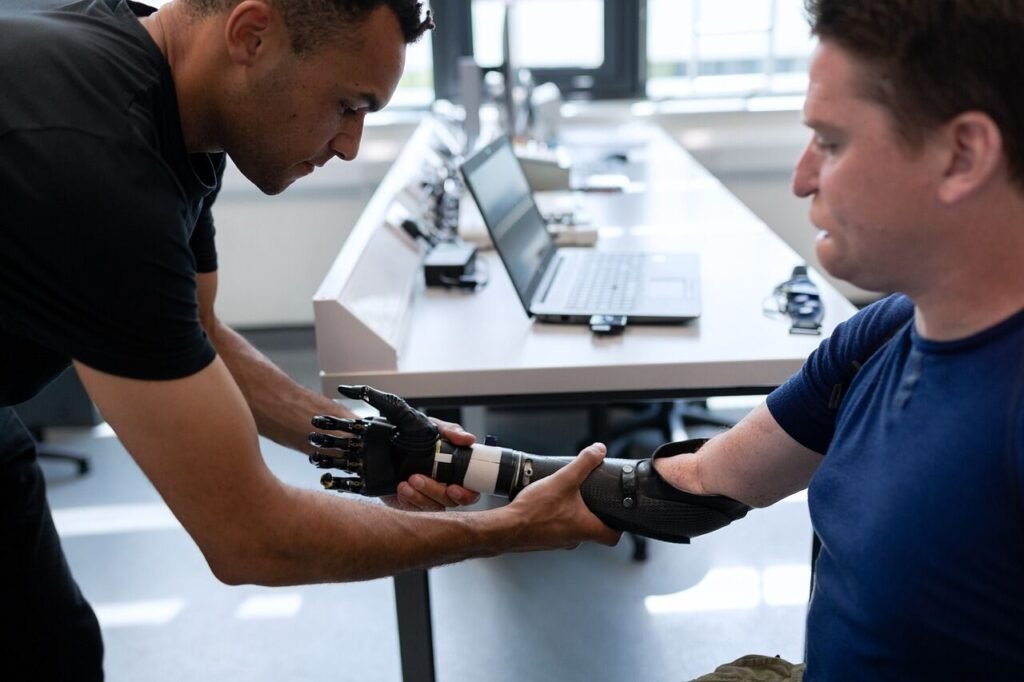
In central Pune, Griffin Healthcare provides prosthetic and orthotic services with a gentle, patient-first approach. Their team understands how hard it can be to adjust to a new limb. They use modern foot scanning and provide support that feels personal and kind. Patients often say they leave feeling more hopeful and informed.
Deccan OrthoPro: A Rehab Hub Near the Railway Station
A bit off the usual tourist path, Deccan OrthoPro sits behind one of Pune’s busy hospitals near the railway area. It combines prosthetic fittings with physiotherapy, occupational therapy, and other rehab needs all in one place. If you’re already managing other medical needs or live nearby, this makes visits easier and more efficient.
Ottobock Clinic: Global Tech, Local Access
Ottobock has a sleek and modern setup in Pune. It brings prosthetic technology used around the world into your neighborhood. Whether you need a smart socket or a powered knee, they’ve got the gear. Their goal is mobility with precision—and they’re known for treating patients like partners, not cases.
Sancheti’s Prosthetic Lab: Light Limbs, Big Impact
At the Sancheti Institute, technology meets care. They use carbon fiber materials and smart designs to make limbs light yet strong. They even create prosthetic fingers or toes to match natural skin tones. Their space feels like a gentle promise: that beauty and mobility can go hand in hand.
KARE Pune: Compassion Meets Innovation
KARE sets up a comforting place for fittings, not just a clinic. Their team blends global training with warm care. You’ll feel heard while talking through limb options—from legs to hands. And if you want innovation, they partner with world leaders, but deliver it with understanding and trust.
A Legacy of Hope: The Artificial Limb Centre
This isn’t just a clinic—it’s history. Founded after World War II to help wounded soldiers, it grew into a full rehabilitation center. Now paired with a medical college, it offers prosthetic support rooted in decades of dedication and expertise. For many, it’s both a place and a promise: that support lasts long after healing.
Getting to These Clinics: Metro, Parking, and Timing
(Note: Specific transit details like metro exits and parking spots are best confirmed directly—but here’s a helpful guide.)
Central Access Zones
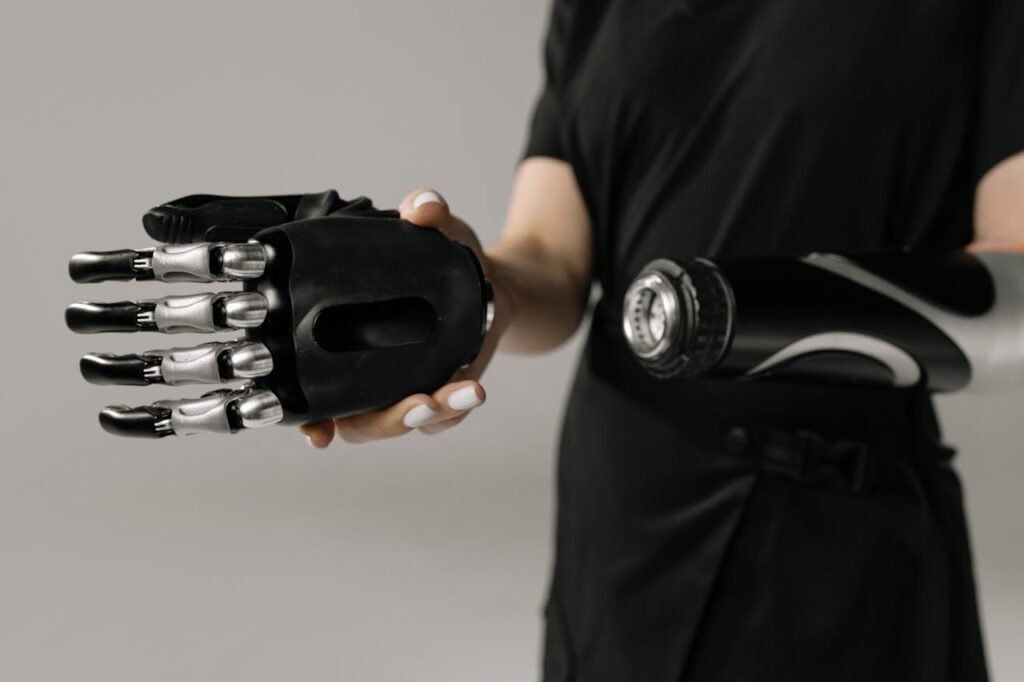
Some clinics are located near major roads and transit routes. For example, Griffin Healthcare and Ottobock are closer to Pune’s core, so they’re easier to reach by both car and local transit. If you’re coming by metro or bus, these clinics feel welcoming and familiar—especially during off-peak hours.
Navigating the Outer Clinics
Deccan OrthoPro and Sancheti’s lab are near hospital zones with ample paid parking. You may find spots right nearby, and some clinics share arrangements with medical buildings. A quick call before you go helps—so you can arrive calm, not rushed.
Planning Around Your Day
Many clinics open mid-morning and stay until early evening. Ottobock and KARE tend to start around 10 or 11, while hospital-linked labs may open a bit earlier. If traffic worries you, try a midday visit—it often brings quieter roads and more personal attention.
What Happens When You Go for a Fitting
First Visit: Conversation Before Technology
Your first trip to a prosthetic clinic in Pune shouldn’t feel like an exam. It’s more like sitting down with someone who genuinely cares. The prosthetist will sit with you, ask gentle questions about how you live your day, what challenges you face, and what your hopes are.
They don’t expect technical language — just your story. Your lifestyle, your dreams, your concerns. This helps them guide you toward the right device, whether it’s a strong walking leg or a responsive bionic hand.
Exam and Measurement: Gentle and Accurate
After the chat, the prosthetist will carefully examine your residual limb. They look for comfort, skin condition, and how your body responds. Sometimes they use digital scanning tools or gentle casting materials to make sure the fit will be just right.
This step takes time, but it’s worth it. A limb that’s shaped just for you feels more natural, reduces irritation, and supports longer, more confident walks.
Choosing Your Prosthetic: Matching Needs With Options
Once they understand you, they’ll explain your options in simple language. You might hear about:
- Basic limbs for walking or balancing.
- Hands that move when you think they should.
- Cosmetic limbs that bring peace of mind when going out.
The prosthetist will compare what these options can do, how much they cost, and what your body needs. Then you’ll talk through it, quietly, with no pressure.
Making It Real: Fitting and Adjustment
After the fitting is made, you’ll come back to try it on. You’ll stand, walk, maybe pick up a cup or dry your hair—whatever you need to try. The prosthetist watches how your body reacts and gently tweaks what needs changing.
If there’s discomfort or imbalance, they adjust straps, length, or angle. If the fit is right, you’ll feel supported. You’ll feel you can move again. And if it’s not quite right yet, they’ll keep working until it is.
Finding Your Flow: Learning to Move Again
Holding onto a walking stick or gripping a pen isn’t automatic with a new limb. It takes training. A physiotherapist or occupational therapist will help you build strength and balance, one step or grip motion at a time.
It’s okay to feel unsure at first. Each session helps you gain confidence, manage fatigue, and integrate the limb into your life slowly — but surely.
Real Stories from Pune: People Finding Their Way
Shankar’s Morning Walk
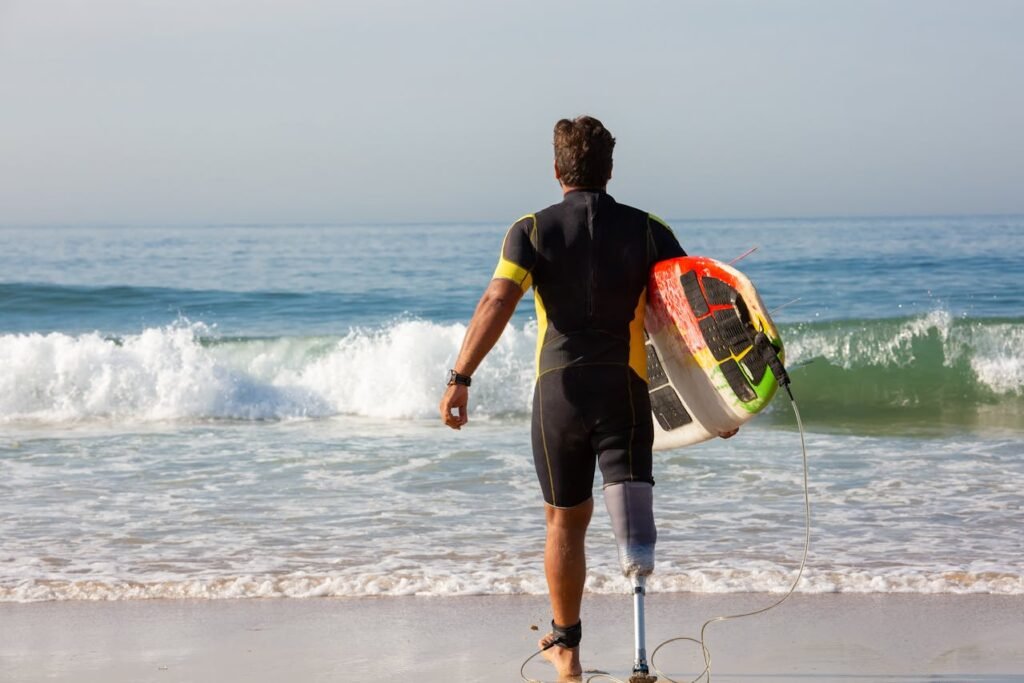
Shankar, a gardener from Kothrud, had a below-knee amputation. He missed working in his flower beds, plucking morning blooms. After visiting KARE Pune, he got a new prosthetic leg that helped him not just walk — but walk comfortably.
Now, he’s back in the garden before sunrise. Every step among his plants reminds him that he’s not just healed — he’s home again.
Meera’s Return to Teaching
Meera, an art teacher from Viman Nagar, lost an arm in an accident. She worried she’d lose her chance to teach creatively. A trip to Griffin Healthcare changed that with a myoelectric hand that responds to her movements.
Weeks later, she’s back in class — painting, making clay figures, and inspiring her students with her own strength. Her hand doesn’t just move — it brings her dreams back to life.
Ravi’s Daily Ride
Ravi, an office worker from Hadapsar, was worried a prosthetic leg would cost too much. But a local hospital lab gave him a comfortable, affordable device. He thought he might have to stop riding his motorbike.
Today, he rides again—carefully, confidently, and with pride. He says, “This isn’t just help. It’s home.”
Long-Term Care That Keeps You Moving
Regular Check-Ups Matter
Even a great fit can change as your body does. Weight shifts, muscle tone changes, or general wear can cause discomfort. That’s why ongoing check-ins with your clinic matter.
These visits are not failure. They’re part of what keeps you moving strongly with time.
Repairs, Replacements, and Support
Straps wear. Liners wear. Even the best limb needs attention. Clinics like Ottobock and KARE offer servicing or spare parts, so your prosthetic stays sharp just like you do.
It’s like caring for a favorite pair of shoes — with small help, they last far longer.
Community and Confidence
Recovery isn’t just physical. It’s about rebuilding your spirit too. Some clinics in Pune connect you to therapy or peer groups — people who’ve felt what you’re feeling and found hope again.
When you talk to someone who’s walked the path before, it helps more than you might expect.
Real Prosthetic Clinics in Pune: Where to Go and What to Know
Ottobock Clinic: High-Tech Mobility in Salisbury Park
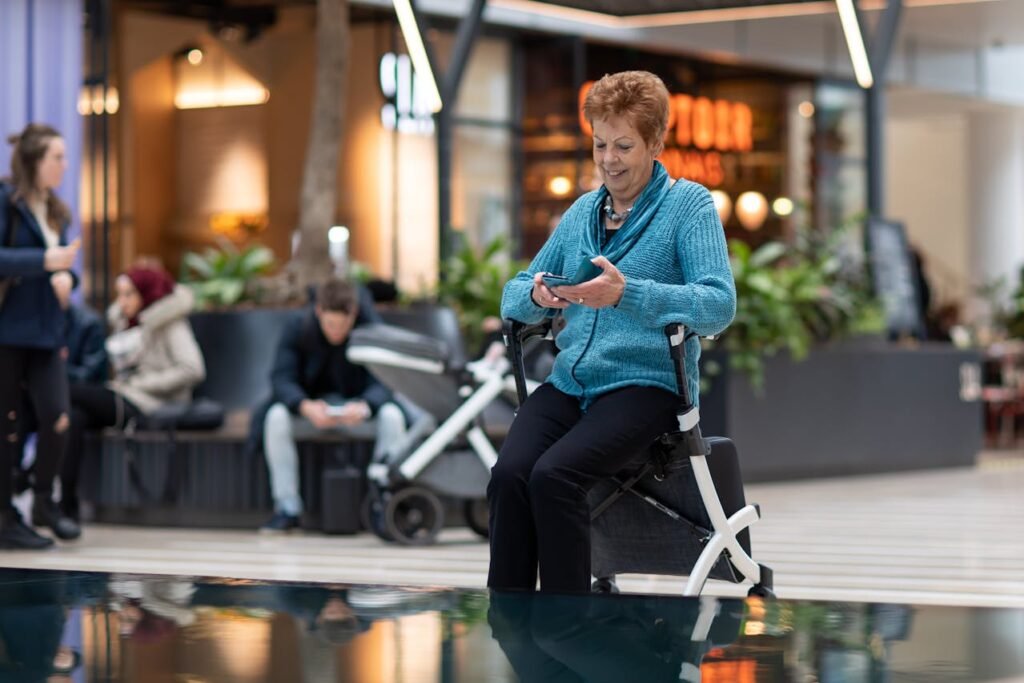
Ottobock operates a modern rehabilitation center in the heart of Pune, known for top-quality prosthetic and orthotic care. You’ll find advanced tech like powered knees and custom sockets—all tailored to help you stay mobile with confidence.
Deccan OrthoPro: Full-Service Support Near the Railway Station
Located close to the railway station, Deccan OrthoPro was one of the first certified clinics in Pune to offer rehab under trained prosthetists and orthotists. They provide prosthetic fittings, rehab aids, mobility assistance, physiotherapy, and occupational therapy—all under one roof.
Griffin Healthcare: Foot Scanning and Personalized Care in Undri
Griffin Healthcare in the Undri area focuses on prosthetics and orthotics with modern scanning tools. Patients note how the team listens patiently and offers guidance tailored to individual needs. It’s a place where technology meets heartfelt support.
Orthopaedic Industries: Custom Solutions in Narayan Peth
This clinic blends a clinical practice with a manufacturing facility. They offer prosthetics for upper and lower limbs, spinal support, cosmetic restorations, animal prosthetics, and mobility aids. It’s a clinic that feels like a skills hub standing for both functionality and innovation in Narayan Peth.
Artificial Limb Centre and Endolite: Legacy and Local Access
Artificial Limb Centre and Endolite are trusted names in Pune. They combine local manufacturing with wider coverage across India. If you appreciate experience and local support, these names bring comfort in reliability.
KEM Hospital’s Prosthetics Department: Integrated Medical Care
Within KEM Hospital, the Prosthetics & Orthotics department offers clinical services backed by medical oversight. That means you can access prosthetics, physiotherapy, and other medical support in one hospital environment—a strong choice if you’re coordinating care for multiple needs.
How to Find Your Way: Timing, Metro, and Parking Tips
Reaching the Clinics by Metro and Bus
Pune’s metro network covers key areas, including central parts like Bhosale Nagar, Baner, and Kharadi. Clinics like Griffin Healthcare (in Undri) and Orthopaedic Industries (in Narayan Peth) are within reach via short auto rides from the nearest metro or bus stops.
Healthcare locations near the city center, such as Ottobock in Salisbury Park or KEM Hospital, are easier to reach via shared autos and buses during off-peak hours.
Parking Made Easy
Clinics near hospitals typically offer paid parking zones that are familiar to visiting patients. Deccan OrthoPro’s convenience near the railway station often allows for street-side or garage parking nearby. Griffin Healthcare in Undri may offer dedicated visitor parking—though it’s wise to call ahead if you need reserved space.
If your clinic visit coincides with rush hour, try starting midday when traffic is calmer and parking spots are easier to find.
When to Visit for Comfort and Care
Most clinics open by mid-morning and close by early evening. Ottobock and Griffin often start around 10 or 11 and wrap up by 5. Hospital-based setups like KEM may open earlier, around 9, especially for OPD sessions.
Visiting mid-day offers a quieter, more relaxed experience. Lines are shorter, and staff can give more attention—making your visit smoother and less stressful.
What to Expect From a Fitting in Pune
Your First Consultation
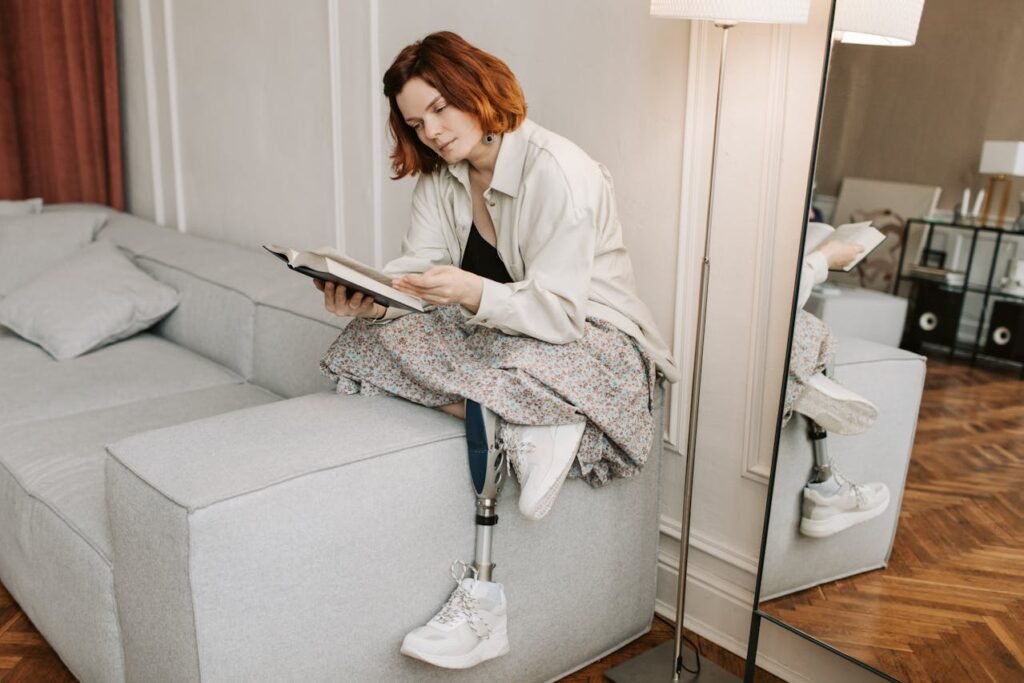
When you walk into a clinic for the first time, you may feel nervous. That’s completely natural. The team will make it easy.
They’ll sit down with you and ask gentle questions: How did the limb loss happen? What do your days look like? What kind of tasks do you want to do—walking, typing, cooking, riding?
You don’t need to know any medical terms. Just speak from the heart.
Your answers help them choose the right prosthetic—one that fits your life, not just your body.
Scanning, Casting, and Measuring
After the chat, it’s time to understand your body.
The prosthetist may use a tape measure or scanner to map your limb. Some clinics make a soft mold called a cast to get the exact shape. This ensures your new limb fits just right.
There’s no pain involved. It’s gentle and precise.
This step is especially important because a good fit means fewer problems later.
Trying on Your New Limb
Once the prosthetic is ready, you’ll be asked to try it on.
At first, it may feel strange—like wearing a new shoe that’s stiff or unfamiliar. But as you walk, hold, or move with it, the clinic will observe and adjust.
If something pokes, slips, or feels tight, they’ll fix it.
Sometimes you’ll need to come back for one or two more visits. This is completely normal. It means they’re making sure your limb feels like a part of you—not just something you wear.
Rehab and Strength-Building
After fitting, your body will need time to adjust. Muscles need to grow stronger. Balance takes practice.
Most clinics in Pune work with physiotherapists or have rehab centers nearby. They’ll teach you how to use your new limb step by step.
You’ll learn to walk again, write again, hold again—and most importantly, feel like yourself again.
Pune User Stories That Inspire
Suresh’s Ride to Independence
Suresh, a 34-year-old from Pimpri, lost his leg in an accident. For months, he avoided public spaces. Then he visited Deccan OrthoPro, where he received a lightweight leg designed for daily use.
Today, he rides his scooter again and helps run his family shop.
He says, “People told me life stops after an amputation. But it didn’t stop. It changed. And now I’m stronger.”
Amrita’s New Confidence
Amrita, a young student in Kothrud, was born without a right hand. She used to hide her arm in photos. Then her parents took her to Griffin Healthcare, where she tried on a bionic hand.
At first, she struggled to open and close it. But now, she ties her shoelaces and styles her hair on her own.
She says, “I don’t feel shy anymore. I feel ready.”
Cost and Payment Tips in Pune
Understanding the Real Costs
The cost of a prosthetic in Pune depends on the type, material, and technology.
A basic leg could start around ₹30,000. A custom below-knee limb might go up to ₹60,000 or more. Above-knee limbs cost higher due to added complexity.
Bionic hands, like Grippy™, start around ₹2.15 lakh and go up depending on the features. They cost less than imported options but still deliver life-changing tech.
Always ask for a full breakdown. Make sure it includes fittings, follow-ups, and training.
EMI and Financial Help
Many clinics in Pune now offer EMI plans. Some are 0% interest. This means you don’t have to pay everything at once.
You’ll need basic ID, a bank account, and sometimes a credit check.
Also ask if any NGOs, trusts, or government schemes can help. Hospitals and social workers may connect you to programs you didn’t know existed.
It’s okay to ask. It’s your right to explore every option.
How RoboBionics Supports You in Pune
Indian-Made. Globally Trusted.
RoboBionics builds advanced, user-friendly bionic limbs right here in India.
Our flagship product, Grippy™, is a bionic hand that responds to your natural muscle signals. That means when you think of moving your hand—Grippy™ moves with you.
It’s light, fast, and smart. It lets you grip bottles, hold hands, write, eat, and more.
We built it so that people in India don’t have to rely on foreign products that cost 10 lakhs or more.
Grippy™ starts at ₹2.15 lakh and includes the patented Sense of Touch™ feedback system. You’ll be able to feel pressure—so you can avoid squeezing too hard or dropping things.
Demos and Support in Pune
We work with partner clinics in Pune to offer demos, fittings, and service for Grippy™.
If you’d like to try it, we can set up a session where you see exactly how it works—no pressure, no sales pitch. Just clarity and care.
We’re here not just for fittings—but for the full journey.
From choosing your limb to learning to live with it—we walk every step with you.
Final Thoughts: You’re Not Starting Over, You’re Moving Forward
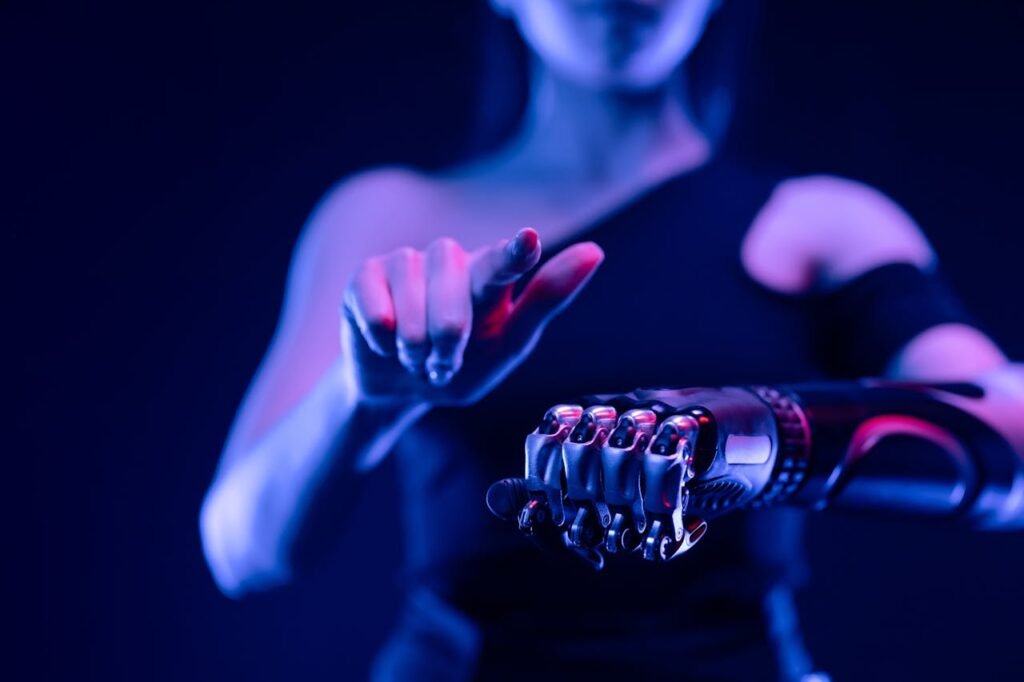
Choosing a prosthetic is a big decision. It’s not just about replacing what was lost—it’s about rebuilding strength, reclaiming freedom, and returning to yourself.
If you live in Pune, you don’t have to travel far or wait for help. The city is filled with skilled prosthetists, supportive rehab centers, and clinics that truly care. Whether you’re in Baner, Kothrud, Hadapsar, or right in the heart of Camp, there’s a space ready to support your journey.
You may feel scared. Or uncertain. Or even overwhelmed by choices. That’s okay.
But know this—many others have stood where you stand now. They’ve asked the same questions, taken the same unsure steps, and found their way forward.
And so can you.
You Deserve Technology That Understands You
At RoboBionics, we don’t just build devices. We build confidence.
Grippy™ was made to serve people like you—real people with real lives who want to do more, hold more, and live more fully.
We built it in India, for Indian users, with one goal: to bring world-class bionic hands to those who need them most—without the impossible price tag.
We’re not just selling a product. We’re here to be your partner. From your first demo to your daily use, we’ll stand by your side.
Take the First Step—On Your Terms
If you’re ready to explore what’s possible, start by visiting a clinic. Talk to a prosthetist. Try a demo. Ask every question on your mind.
Take a family member with you, if you like. Or go alone and just observe.
Whatever feels right—do that. This is your journey, and it should begin in a way that feels safe and empowering.
You don’t have to do it all at once. You just have to begin.
We’re Here When You’re Ready
Whether you choose a mechanical limb, a cosmetic arm, or a high-tech bionic hand like Grippy™, know this—your life is not limited.
You are strong. You are capable. You are whole.
And with the right support, you’re going to move forward—step by step, grip by grip, day by day.
Whenever you’re ready, we’re here to help.



